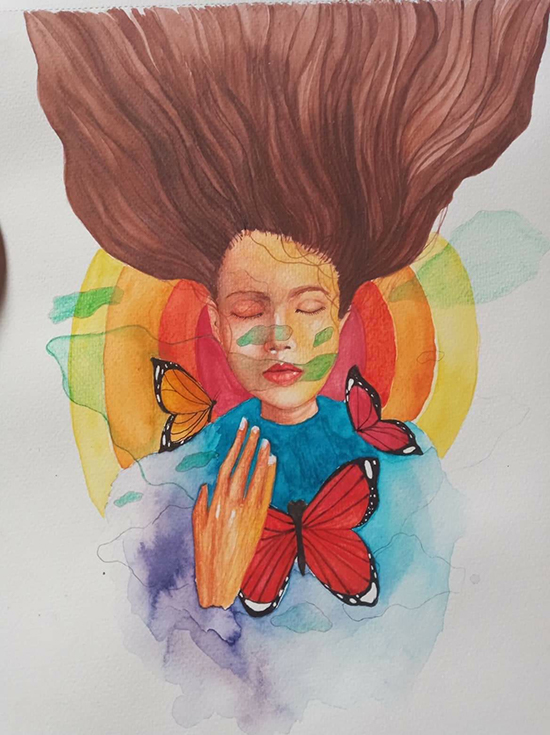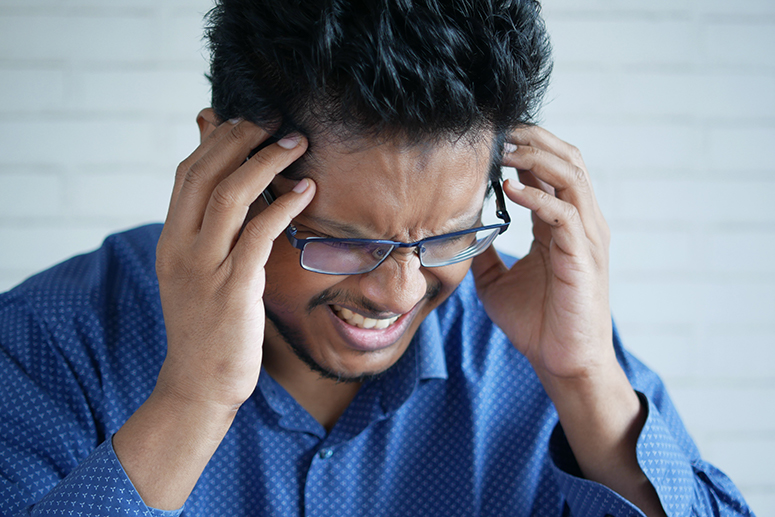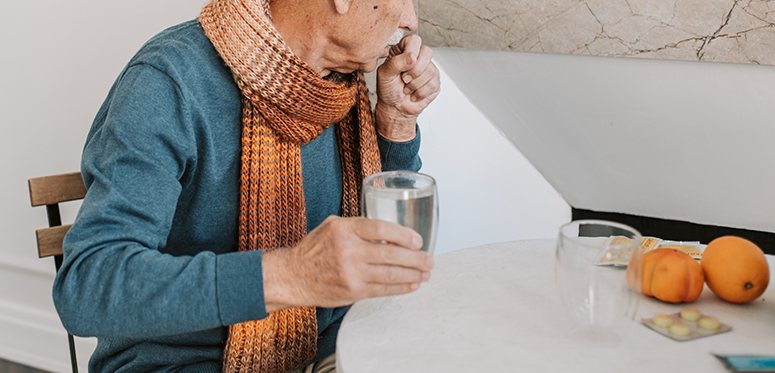Still feeling the after-effects of the virus
One year and one month after my bout with COVID-19, I can still feel the effects of the virus on my well-being. I was infected by the virus when the Delta variant was surging, though I never did find out which variant actually hit me.
1. My memory is diminished by 0.001 percent. I saw a familiar face in the school last week where I teach. He was my student last sem, a favorite in our online class because he was cool and smart and he was one of the few who got the highest grade I gave. We met personally four times in the duration of the sem and always, always it would be me to greet him first by his first name. We would even have selfies in those four meetings.
I would know his name — even if he wore a face mask. But last week, when I saw him lining up for enrollment, he greeted me but I couldn’t place where I met him — worse, what his name was. Normally, it would come to me in a split second; the longest is a minute. But not that day. It took me the whole day, without resorting to my class record, to remember who he was — Andrei Caballero.

It was not the first time it happened to me since I survived COVID. I forget names, even names of events I attended. I now also catch myself groping for words when words, their synonyms and antonyms, used to appear like they were coming out of my fingers when I typed articles on my computer. It’s natural to forget some words sometimes. But when it happens almost every day, for a writer like me at that, it becomes a nuisance, a frustration, a letdown. So I take action to combat the problem: I put digital notes in my phone to remind me of the words I always forget: subversive, disheartened, disenfranchised, diabolical, paradisiacal.
I come from parents with a very retentive memory. My mother still remembers the date when we first had our black-and-white TV set in the ‘80s. She still remembers the exact time each of her five boys was born, including the radio program she was tuned in to while laboring at home. My father, too, before he passed away, knew pertinent details about his dealings with life and the names of all the rice varieties he planted in the field, where he got the seeds, who introduced the seeds to him — complete names, addresses of those people and companies and all.
I used to be like them. Until my duel with the virus. I have noticed that my memory is diminished by 0.001 percent. The computation is mine, just to illustrate the sometimes glacial pace of my memory pickup. I’m so bothered already that I am scheduled to see a physician soon to address this.
“We call it postviral syndrome when symptoms are sustained after getting a viral infection. Symptoms may last for months or years. This may happen after COVID-19, too, as we have been seeing with patients,” explained Dr. Joseph Adrian Buensalido, infectious diseases specialist at Asian Hospital and Medical Center and Makati Medical Center.
Dr. Buensalido, also a clinical associate professor at the UP-Philippine General Hospital, said when symptoms last for months, it is called post-acute sequelae of SARS-CoV-2, or PASC, and known more popularly as “Long COVID.” Sequelae are after-effects, he said.
Your smell experience is part of after-COVID phase. Phantom smell and distorted smell have been reported after recovery, and could last for several months.

“Postviral syndrome is usually considered when symptoms after recovery continues into the third week and beyond. But when symptoms reach three months, it can now be called Long COVID.
“The good news is that those who are fully vaccinated and get COVID-19 are 50 percent less likely to have Long COVID or get complications of the lungs, heart, and brain, that can lead to long-term health problems,” Dr. Buensalido added.
Dr. Regina Berba, a professor at the UP-PGH and chairman of the hospital infection control unit also said Long COVID is in existence.
“But don’t despair — it will go away someday,” said Dr. Berba, also the section head and consultant at the infectious disease department of The Medical City. “The forgetfulness is what people term ‘brain fog.’ It’s temporary. But of course, it’s very distressing to those who get it.”
Dr. Jacqueline Dominguez, a neurologist who heads the Memory Center of St. Luke’s Medical Center, said, “Memory and cognitive decline after COVID has been reported. It’s part of the ‘long haul’ after COVID.”
She told me, “Though your symptoms are possible, there could also be other potential contributors to your symptoms. Consider your medical history, and account for change that comes with age. But at 50 (I told her my age), probably not age.”
2. Intermittent coughing. I was reviewing my online journal last week while nursing a cough brought about by my early-stage pneumonia with asthma complications when I noticed I had consulted my pulmonologist six times after my bout with COVID last year. That means, every two months, I would develop a cough that would necessitate taking antibiotics. I only had that problem after the virus hit me.

“It’s what is known as post-viral cough syndrome,” Dr. Ely Obillo, my pulmonologist at St. James Hospital in Sta. Rosa City and head of pulmonary department at Perpetual Help Medical Center in Biñan City, said.
“The cough may linger or may be recurrent as it can be caused by inflammation of the airways for a longer period. In your case I think, this could have been part of your symptoms that accompanied your loss of smell and taste for quite some time when you had COVID. Your frequent environmental exposure in your different activities after COVID may have also contributed,” Dr. Obillo added.
3. My strength is less. Though I don’t easily get tired, my prowess in biking has lessened. What would take three hours to bike — like Pagsanjan from Cabuyao, a distance of about 50 kilometers — would now take me, a solo biker, about five hours. What used to be a two-stop ride for a long drive now necessitates five stopovers. But for my mental health, which was also attacked by the virus, I need to be on my saddle and ride the wind.

“Fatigue is the most reported sequela symptom of Long COVID,” said Dr. Buensalido.
4. Weird sense of smell. There are many mornings when I wake up without the immediate sense of smell. I asked a doctor friend who told me it’s natural from time to time to experience that — especially when one has allergic rhinitis. But not on an almost every-other-day basis.
It took me three months to regain my sense of smell when I had COVID in July 2021. I courted back my sense of smell by undergoing acupuncture in August last year at Sonya’s Garden, where I stayed for almost three weeks for complete healing. (Note: I forgot the word “acupuncture” while writing this paragraph and had to stop for three minutes to remember the word. Arghh.)

Though my full sense of smell is back, I have also noticed that I smell the foul odors more than the good ones. I can smell a burning tire even if it’s several meters away from my house. I can smell the rancidness of the fish being mongered even before I bike past the wet market in Gulod. Even if my car is well-deodorized, I can detect the sour scent of the milk tea that accidentally spilled on the mat; never mind if the mat had been cleaned many days before. And I am the only one who can smell it. I have had a weird sense of smell after my fight with the virus.
“Your smell experience is part of after-COVID phase. Phantom smell and distorted smell have been reported after recovery, and could last for several months. This is due to inflammation of the olfactory nerve at the time of COVID. No specific treatment (needed). My advice is to do a diary to determine the triggers if any and avoid them,” explained Dr. Dominguez.
5. Dazed days. I noticed I was lutang (dazed) many weeks after I won over COVID last year. Thankfully, my reflexes came back just when I needed to start writing a children’s book in December.
Lately, however, the dazed days have come seeping again from time to time. It’s the time I have always considered taking care of my mental health. I always have the conscious effort to snap back. This condition has brought me to a resolve not to decide on pertinent matters right away. What a blow considering I have always been decisive and I always take responsibility for my actions. I am in a hurry for this to come back.
It’s hard because when I go out to see my friends, the effortless stance of being all-ears at a party where the spotlight is often turned on me because of my natural gift of gab has slightly become an exercise of making sure I am always on my toes. The exercise helps, nonetheless, in bringing back my spontaneity.

6. Altered sleep pattern. Pre-COVID, I slept like a log. While battling COVID, I dreaded sleeping because in my head was the nature of the virus: treacherous. I did not want it to attack me while I was sleeping. I was put on melatonin by my doctor. It somehow helped. Post-COVID, I have never slept earlier than 12 midnight. There are times I would fall asleep at 6 a.m.
But I am hoping and praying everything will come back to the way it was before. So help me, God. *


